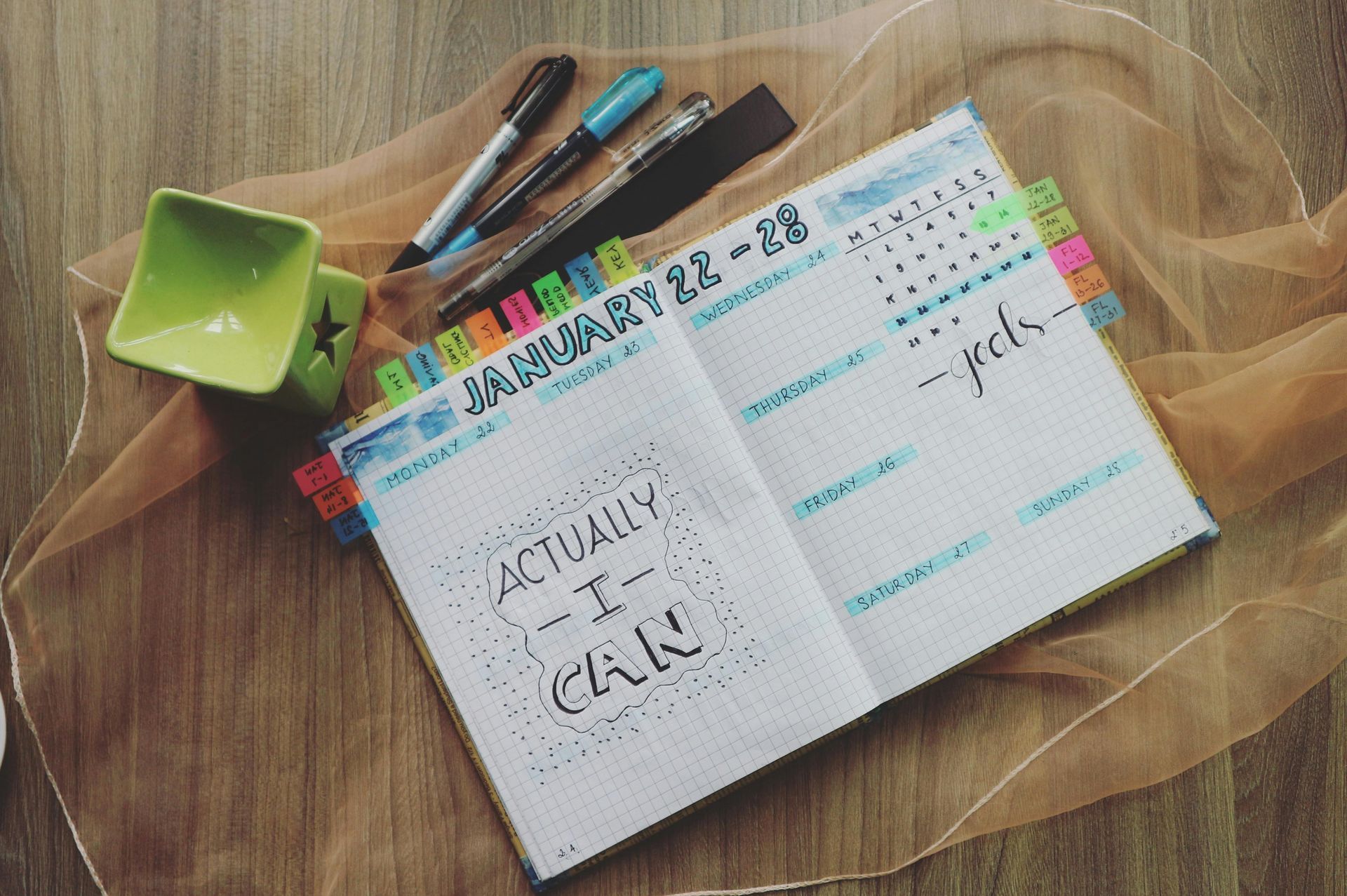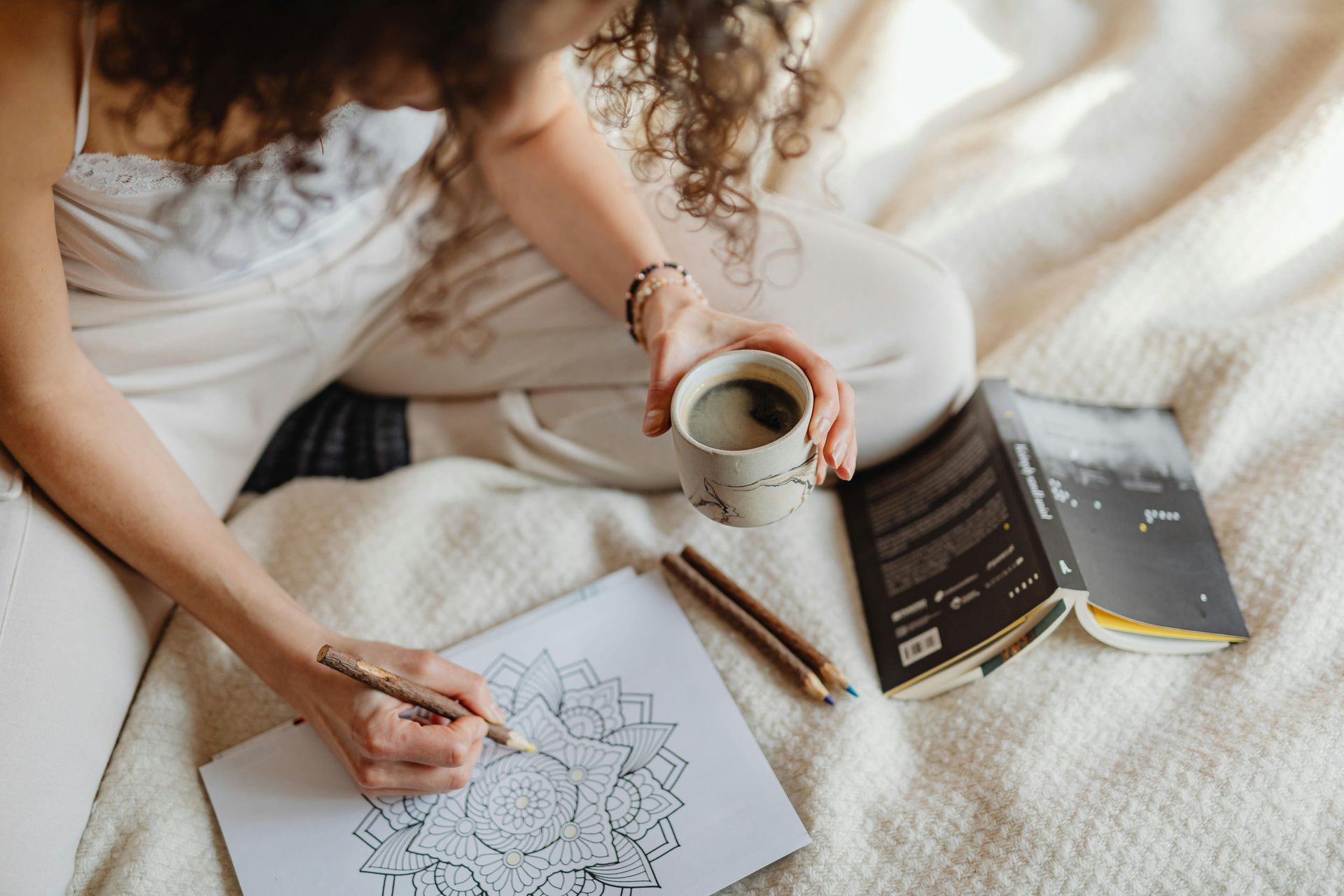How Structured Daily Habits
Can Reduce Stress

Very often we find ourselves juggling multiple responsibilities—whether it's work, family, relationships or personal goals. Amid this whirlwind of tasks and expectations, stress can easily take over, leaving us feeling overwhelmed and depleted. But there’s a simple yet powerful tool that can help us regain control and reduce stress: routine.
Creating structured daily habits can bring a sense of order and calm to the chaos. Routines are not about rigid schedules or taking the fun out of life; they are about finding balance and building a foundation that allows us to thrive, even in the face of challenges. Let’s explore how establishing a routine can become a game-changer for our mental well-being.
Why Routine Matters for Stress Relief
- Consistency Builds Confidence
- When you have a routine, your day becomes more predictable, and this predictability can help alleviate the anxiety that comes from uncertainty. Knowing what to expect throughout the day gives you a sense of control over your time and energy.
- For example, starting your morning with a simple, consistent ritual—whether it's enjoying a cup of coffee, journaling or doing a 10-minute stretch—can set a positive tone for the rest of the day. This consistency not only grounds you but also builds confidence that you can handle whatever comes next.
- Minimizing Decision Fatigue
- We often make countless decisions daily, from what to wear to how to manage work deadlines, family obligations and personal time. This constant decision-making can be mentally exhausting and lead to decision fatigue, which in turn adds to stress.
- Having a routine eliminates the need to make decisions about everyday tasks. When you know what time you’ll exercise, eat meals or unwind at night, you free up mental space for more important decisions. By reducing the number of small decisions you have to make, you can conserve energy and reduce the pressure on your mind.
- Creating a Sense of Accomplishment
- Incorporating small, achievable habits into your daily routine can create a sense of accomplishment that boosts your self-esteem. Completing tasks, even seemingly minor ones like making your bed or prepping meals for the week, gives you a feeling of productivity and satisfaction.
- These "wins" throughout the day remind you that you are making progress, which can counter feelings of stress or self-doubt. As you build this momentum, it becomes easier to tackle bigger challenges with a calmer, more confident mindset.
Building a Routine That Works for You
Every woman’s life is different, so your routine should reflect your personal needs, goals and lifestyle. A routine that works for one person might not work for another, and that’s okay! The key is to create a structure that supports your mental and physical health, while also allowing for flexibility.
Here are some practical tips for building a routine that reduces stress:
- Start Small and Simple
- Don’t overwhelm yourself by trying to overhaul your entire day at once. Start with small, manageable habits that you can easily incorporate into your routine. For example, you might begin with a 10-minute morning mindfulness practice, a 30-minute evening walk or setting aside time for a healthy breakfast each day.
- The idea is to build consistency, so choose habits that feel achievable and align with your current lifestyle. As these small habits become second nature, you can gradually add more elements to your routine.
- Prioritize Self-Care
- More often than not, we put the needs of others—whether it’s family, friends or colleagues—ahead of our own. But self-care is not a luxury; it’s a necessity for reducing stress and maintaining overall well-being.
- Make self-care a non-negotiable part of your routine. This could be as simple as setting aside 15 minutes each day for a quiet activity you enjoy, such as reading, meditating or taking a bath. When you prioritize yourself, you’re better equipped to show up for others without feeling drained.
- Create Morning and Evening Rituals
- Establishing routines at the start and end of your day can have a profound impact on your stress levels. A calming morning routine helps you ease into the day, while a structured evening routine helps you unwind and prepare for restful sleep.
- For example, in the morning, consider waking up at the same time each day, engaging in light movement or stretching and enjoying a peaceful breakfast. In the evening, you might turn off electronics an hour before bed, practice gratitude journaling or engage in deep breathing exercises to promote relaxation.
- Stay Flexible
- While routines provide structure, it’s important to remain flexible. Life can be unpredictable, and sometimes things won’t go as planned. Instead of stressing over a missed workout or an unfinished task, allow yourself to adapt and adjust as needed.
- The goal is progress, not perfection. Embrace the ebb and flow of life, and remember that routines are meant to serve us, not the other way around. When unexpected events arise, simply return to your routine when you can, without guilt or pressure.
The Impact of Routine on Mental Health
Incorporating structured habits into our daily life has a direct impact on our mental health. Research has shown that people who follow regular routines tend to experience lower levels of stress, anxiety and depression. Here’s why:
- Routine Lowers Cortisol Levels
- Cortisol, also known as the "stress hormone," is released when we’re under pressure. Chronically elevated cortisol levels can lead to a range of negative health outcomes, including fatigue, weight gain and even memory issues. Having a routine can help lower cortisol levels by reducing the frequency and intensity of stressful situations.
- When your brain knows what to expect throughout the day, it doesn’t need to activate the stress response as often. This leads to a calmer, more balanced mental state.
- Boosts Emotional Resilience
- Establishing and sticking to a routine can improve your emotional resilience, or your ability to cope with stress and bounce back from adversity. When we have a reliable structure to fall back on, we're better equipped to handle life’s challenges with grace and composure.
- For instance, if you encounter a stressful situation at work, knowing that you have a set time later in the day for relaxation or exercise can provide comfort and reduce the emotional impact of stress.
- Improves Sleep Quality
- A consistent routine, particularly in the evening, can improve the quality of sleep. Good sleep is essential for mental health and stress management, as it allows our body to recover and our mind to process the day’s events.
- By going to bed and waking up at the same time each day, and following calming bedtime rituals, we can regulate our sleep patterns and improve both the duration and quality of our rest.
In a world that often feels unpredictable and chaotic, establishing a routine can be a powerful tool for reducing stress and improving overall well-being. By creating structured daily habits that prioritize self-care, consistency and flexibility, we can regain control over our life and approach each day with a calmer, more grounded mindset.
Remember, your routine should work for you, not against you. Start small, be kind to yourself, and celebrate the progress you make along the way. With time, you’ll discover that the power of routine lies not just in reducing stress, but in creating a life that feels more balanced, intentional and fulfilling.
Here's to saying "goodbye to stress!"
Patricia Elise













